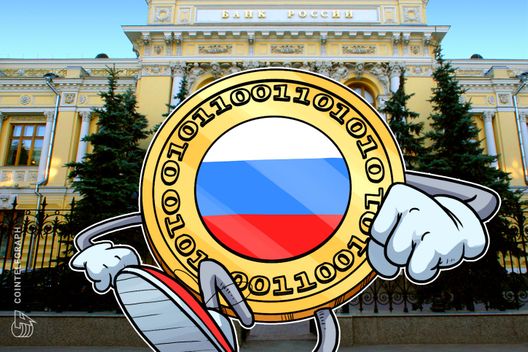72% of institutional traders are crypto-skeptical this year: JPMorgan
The seventh edition of JPMorgan’s e-Trading Edit asked 835 institutional traders about their plans for trading digital assets in 2023, among other topics.
26 Total views
2 Total shares

Own this piece of history
Collect this article as an NFT
A whopping 72% of institutional e-traders have signaled “no plans to trade crypto/digital coins” in 2023, according to a new survey conducted by JPMorgan.
The seventh edition of JPMorgan’s e-Trading Edit surveyed 835 traders from 60 different “global locations” about the technical developments and macroeconomic factors that will influence trading performance in 2023. The survey was conducted between Jan. 3 to Jan. 23, 2023.
The survey revealed hesitation among traders around digital assets. Only 14% of respondents said they will either continue to trade in the digital asset market or begin trading this year.
The remaining 14% of respondents, said they didn’t plan on investing this year but may do so within the next five years.
92% of the institutional traders surveyed by JPMorgan did not — at the time of the survey — have any exposure to the digital asset market in their investment portfolio at the time of the survey.

This may be due to the fact that nearly half of the respondents cited volatile markets as the biggest challenge to perform well on a day-to-day basis.
The quantitative tightening measures imposed by the United States Federal Reserve in 2022 may have played a factor too, with 22% citing liquidity availability concerns as the most influential factor impeding trading performance.
The survey results come just months after investor and trader sentiment in the cryptocurrency market dipped following the catastrophic collapses of the Terra LUNA ecosystem and trading platform FTX in 2022.
In another JPMorgan poll, 30% of respondents cited recession risk as the most influential macroeconomic factor to look out for, while 26% believe inflation will most influence trading outcomes.
It should be noted that trading typically refers to jumping in and out of stocks or assets within weeks, days and even minutes with the aim of short-term profits, while investors have a longer-term outlook.
Last year, an institutional investor survey sponsored by crypto exchange Coinbase found that 62% of institutional investors had invested in the digital asset market from November 2021 to late 2022, seemingly undeterred by the prolonged crypto winter.
A recent study in June 2022 also found that 71% of high-net-worth individuals (HNWI) have already invested in cryptocurrencies, while many others are adopting longer-term strategies rather than trading on a day-to-day basis.
Related: A beginner’s guide to cryptocurrency trading strategies
In a separate finding, the survey found that 12% of traders saw blockchain technology as the most influential technology to shape the future of trading, compared to 53% for artificial intelligence (AI) and machine learning-related technologies.
These figures are in stark contrast to 2022’s poll, where blockchain technology and AI each received 25% of all votes.










